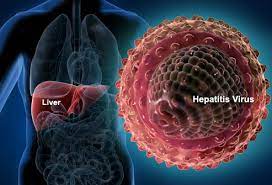‘Viral hepatitis: $7bn required annually for elimination in high-burden countries by 2030’
The Executive Director of The Hepatitis Fund, Finn Jarle Rode, has said about $7 billion is required annually for the elimination of viral hepatitis in high-burden countries by 2030. He said the current global spending for the elimination of hepatitis B and C, is about 10 times less than what is required. He stated this […]

The Executive Director of The Hepatitis Fund, Finn Jarle Rode, has said about $7 billion is required annually for the elimination of viral hepatitis in high-burden countries by 2030.
He said the current global spending for the elimination of hepatitis B and C, is about 10 times less than what is required.
He stated this while fielding questions from newsmen at the sidelines of the African Hepatitis Summit in Abuja.
Rode said only approximately $500 million is currently being spent globally annually to eliminate viral hepatitis, adding that the low level of funding is still a big challenge.
He said the African Hepatitis Summit is aimed at spurring interest locally, regionally and internationally, for donors and governments to wake up to their responsibilities and effectively fund viral hepatitis elimination.
He said that was what was done in Egypt and currently being deployed in Pakistan.
“Start locally, discuss with your government, have the approval of your head of state, and then you look for international funding. That is the way to go. That is the way it was done in Egypt.
“In Pakistan, we are doing the same now. Where the government commits, firstly and then they come and ask us ‘Can you come to our country?’ bring international donors. We then bring it to the table and see what you can bring in terms of matching sort of funding. It is not new, but it’s a very high leveraging opportunity,” he said.
He said prevention of mother-to-child transmission of hepatitis B and C services is the most important activity the fund supports, adding that 70 to 80 % of the funds go to programmes focused on it.
Rode advised Nigeria to strengthen its national health plans for viral hepatitis elimination in line with Universal Health Coverage (UHC), and also keep up with the World Health Organization (WHO) agreements and guidelines on it.
He added that political will across all levels of governance was also key to eliminating viral hepatitis in Nigeria by 2030.
